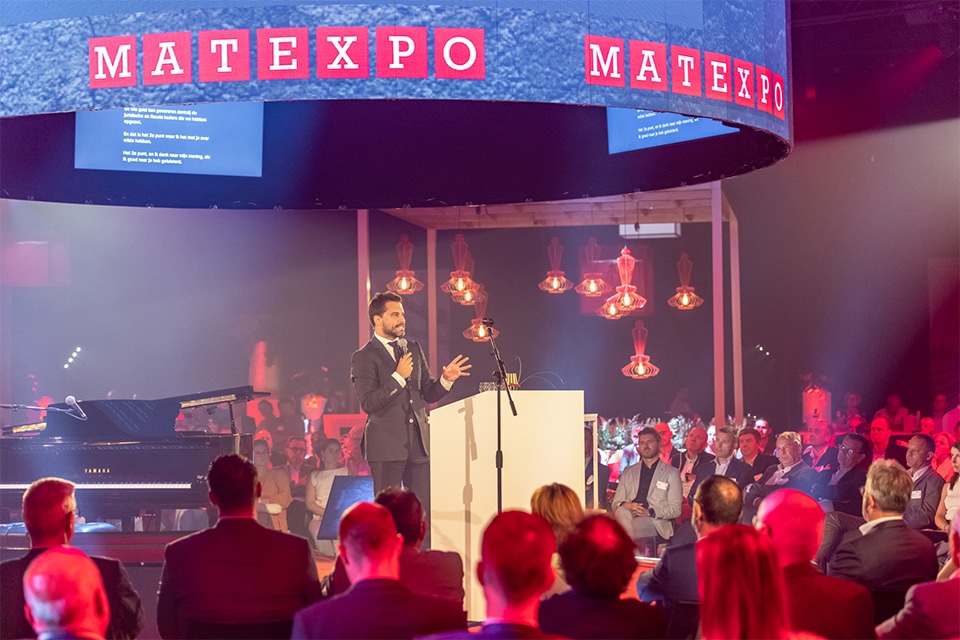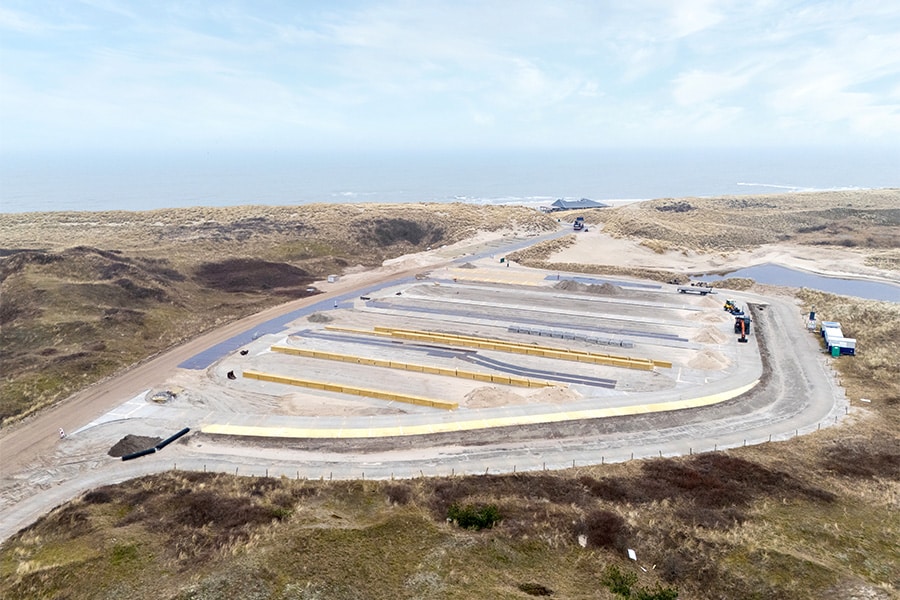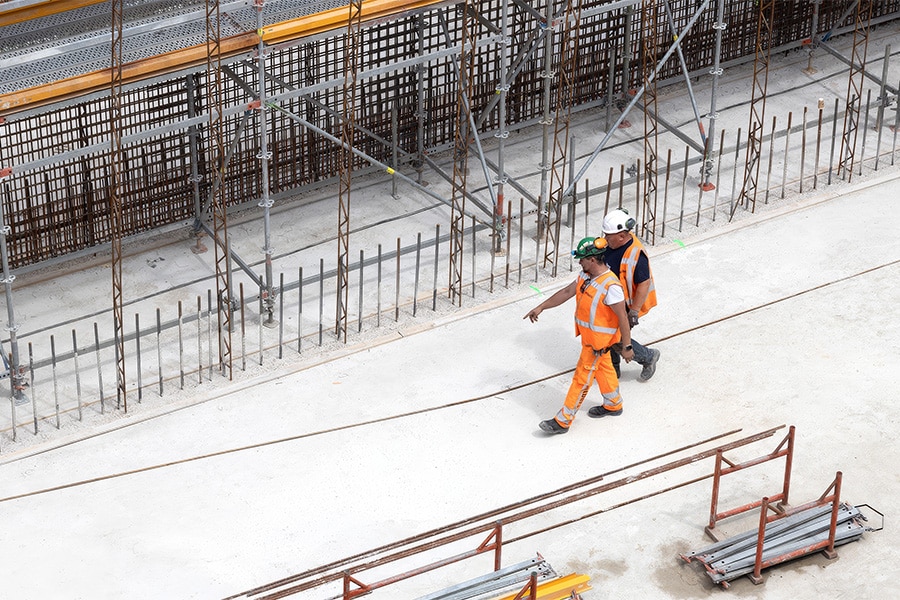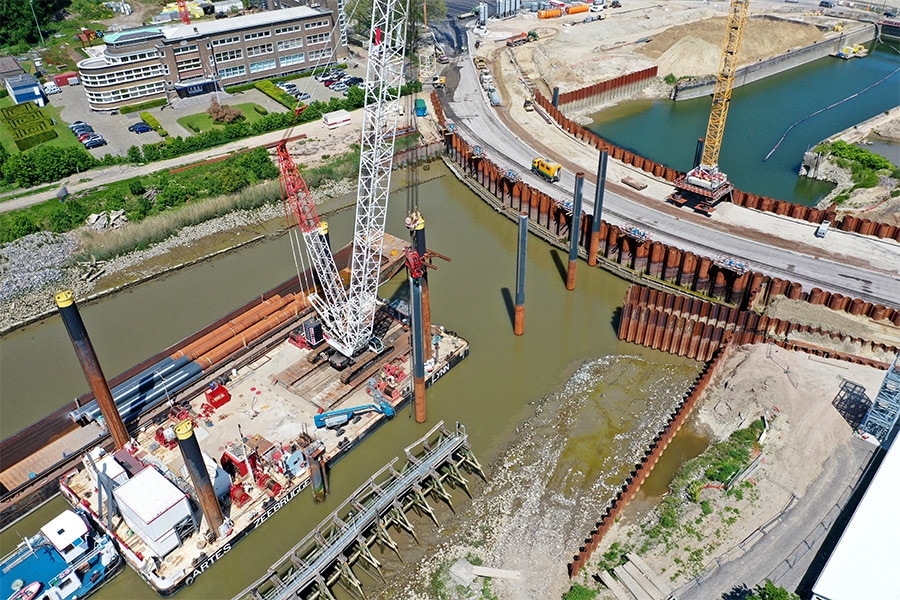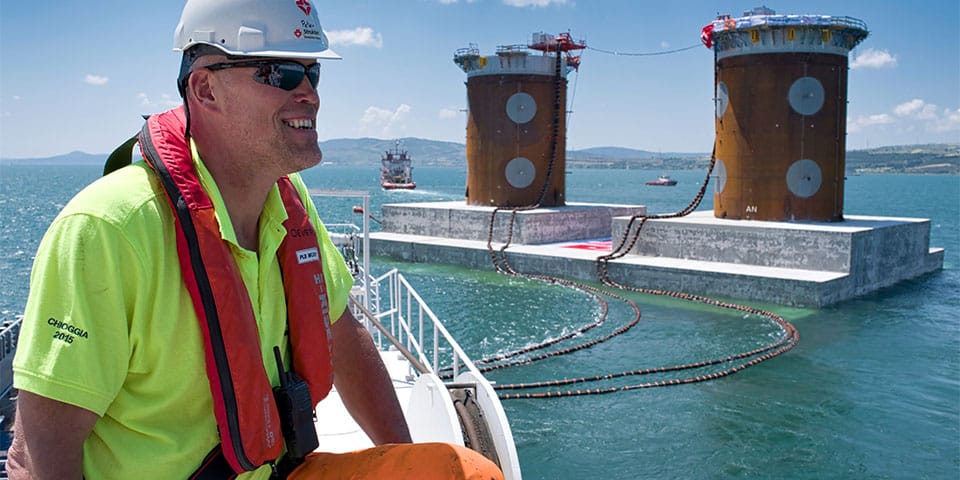
The Pen | Peter van Westendorp, Director Strukton Immersion Projects
Employees must be given -and utilized- space. to be able to develop
Expertise within your field is not something you can get from a book. Nor is it for sale. Expertise is gained through practical experience. The learning process that leads to increasing your expertise is inextricably linked to making mistakes. Anyone who wants to grow within the profession can only do so when given the space to make mistakes. To me, that includes taking, or rather, claiming the space to be able to develop yourself further.
My own expertise is in the area of immersed tunnels and caissons. In order to get to where I am today, I have observed and utilized opportunities. Strukton has offered me that space for 30 years and the learning process never stops. Yet there is a big difference in working methods in general, looking at how things were done 30 years ago compared to today.
The chief exec was the hub around which everything revolved
You used to hobble from department to department within a project, literally back and forth. The computer had reluctantly made its appearance, but was mainly used for purely administrative purposes. By not having a good overview of the overall picture, the consequences of decisions were not immediately visible. Often you found out too late when something didn't work. The main contractor was the focal point around which everything revolved within a project. You really had to rely on the experience of employees and the centralization of data was -literally- in the head of one person. A shortened work week or a day off from that person was therefore disastrous, as then all the knowledge went "on vacation."
Now basically everyone is a manager
That may sound extraordinary, but it is not. Employees can now have a four-day work week, or a day off from a project. Even in management positions. This is possible thanks to our current way of working (together). It allows for a better division of labor. We now accept that we cannot do or need to know everything ourselves. In fact, everyone is now a manager. Systems are more sophisticated than before, work can be done more accurately and error margins have been drastically reduced. Compare that to the past: structures were much larger and more robust, because margins were built in to accommodate inaccuracies. Therefore, today we work more efficiently and thus more sustainably.
The danger is that we forget the human factor
Because we often blindly rely on technology today, the human factor is still sometimes overlooked. However, things can still go wrong. That is why it is important to keep the robustness of the design in it, to still cope with that unforeseen factor. If, as a construction company, you manage to strike a good balance between technology and the human factor and incalculate that mistakes can be made, then you have gained a lot. Then you catch calamities as they should be. Use the resources you have to reduce failure costs so that everything doesn't collapse when things do go wrong.
The level of our expertise may be higher
It used to be that the expertise was in the man. Now the focus is on technology and the pure essence of building itself is sometimes forgotten. However, the laws of physics always rule. Then, now and tomorrow. That is why there is value in starting at the bottom of the ladder as an employee. With the boots deep in the mud. Fall and get up, learn from it. What we see, however, is that people are no longer willing to get their hands dirty first. Everyone wants to get in at the level, without any practical experience whatsoever. This encourages the aforementioned mistakes. Not knowing what is going on "in the field. Not being able to empathize with the man or woman out there slogging away. Who still takes the time to learn the trade?
Act as teacher, not executioner
As a company, make sure that you teach employees, at whatever position, the craft in all facets. Give them that space, let them learn from mistakes. I myself have had that opportunity and I am of the "pay forward" principle. I begrudge everyone the same learning curve I enjoyed myself. That can be difficult for companies with a rigid corporate culture, but it is certainly possible. What you need for that? Confidence, determination and perseverance, on both the employer's and employee's side. Act as a teacher, not an executioner, and you will reap the rewards naturally.
It is still the people who have to do it.
